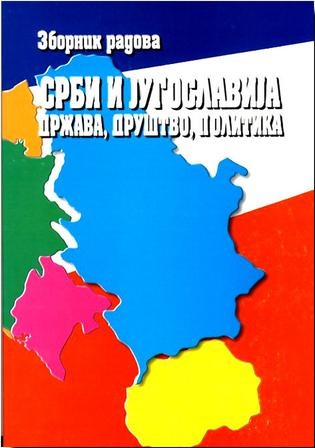Социјални механизам приватизације у Србији (1989–2000)
The Socio-economic Mode of Privatisation in Serbia (1989–2000)
Author(s): Marija Obradović
Subject(s): National Economy, Governance, Economic history, Economic policy, Economic development, Transformation Period (1990 - 2010), Socio-Economic Research
Published by: Institut za noviju istoriju Srbije
Keywords: Serbia; economy; working class; ellit; nomenclature; privatisation;
Summary/Abstract: The basic purpose of this article is to study economy of transition, and thereby the problems posed by their structure and evolution. My aim is to arrive, if possible, at the scientific establishment of a certain number of concepts essential to knowledge of economy of transition, and of the law of development to which it is subject. It is clearly impossible to say whether this aim can be realised, since, for the moment, we possess, in this field, mainly descriptions and “practical concept”. Such practical concept points out to us where the problems are that we have to solve, within the old ways of seeing the problems and on the plane of theoretical practice. If we do not take care, these practical concept can seem to be solutions of problems which in fact they merely describe. The objects described by the term “economy of transition” are obviously among that scientific awareness of which is essential to the understanding of our epoch, since this appears to us precisely as an age of transition. Transition from the socialist mode of production to the capitalist mode of production, that is, a country’s passage from one period of the history to another, through an upheaval in production-relations and class relations and the replacement of one state machine by another with a different class nature. Where this form of transition is concerned it is essential to undertake an analysis which is not confined to the ideological sphere but which reveals the nature of the transformations that are actually taking place in class relations and production-relations. This also brings up the question of the class nature of the state. If we wish to give the term “economy of transition” a specific meaning – and this seems to me to be essential – we must ask ourselves what these “residues” are that we find to difficult to describe, since we refer to them by means of all sorts of metaphors like “impurities”, “survival”, and so on which is a sign that there is as yet no scientific concept with which to think these objects. It is not necessary to work out forthwith the scientific concepts demanded by this way of seeing the problem, but only to offer some considerations which may perhaps help to us to find a road that will lead to the establishment of these concept. When, indeed, we set about studying an actual economy – independently of the very idea of transition – we have to think of this economy as a complex structure which is “structured in dominance”. Finally, each of these complex structures constitutes not a simple juxtaposition of modes of production, but a complex structure which is unique, endowed with its own structural causality. At the same time, this unique structure is subject, in general, to the dominance of a specific structure, which corresponds to that of a given mode of production, the capitalist mode of production. This therefore means that the world economy itself is a complex structure of complex structures. Now, the world economy is the ultimate economic reality. Thus, when we study the working of a particular national economy in which a certain mode of production seems to be “dominant” – we ought not, if we want to arrive at meaningful conclusions, consider this economy otherwise than in its mode of relations with the modes of production which are dominant on the world scale; because we cannot understand this national economy if we do not grasp that it is a part of world production-relations. It is thus as an integrated structure, that the specificity of development of this economy can be understood. Similarly, the transformations of structures and the different stages of transition that a national economy can undergo cannot be analysed in a valid way except by potting these transformations beck into the world structural totality. When we speak of the concept of “economy of transition”, as a historical framework of the process of privatisation, this expression call up the ideas of passing from one mode of production to another, from the socialist mode of production (based on state ownership of the means of production and planed economy) to the capitalist mode of production (based on private ownership and market economy); of the constitution of a mode of production and of the transformation of an economic system. “Economy of transition” is characterised by the complex structures of national economies that development is conditioned by a world economic system. The “economy of transition” of Eastern European countries can be analysed only in the framework of the capitalist world system, as “dominant” mode of production on the world scale, i.e. the capitalist world system witch structures were established during the long-term social-historical processes of globalisation. The integration of national economies through the world market has been carrying out by this process.
Book: Срби и Југославија. Држава, друштво, политика
- Page Range: 181-221
- Page Count: 41
- Publication Year: 2007
- Language: Serbian
- Content File-PDF

